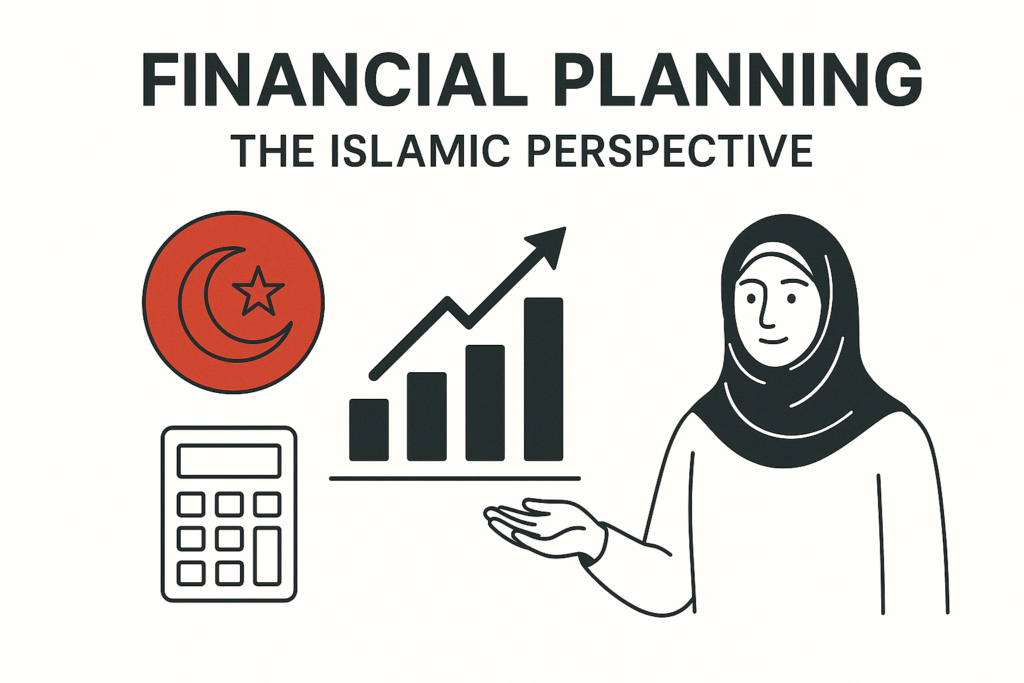Islamic Finance for Entrepreneurs: Funding and Financial Strategies

Starting and growing a business as an entrepreneur requires access to capital and effective financial management strategies. For Muslim entrepreneurs, adhering to Islamic principles while navigating the financial landscape is essential. Islamic finance offers various Shariah-compliant funding options and financial strategies that align with ethical and religious values. In this blog post, we will explore these options and provide guidance on how entrepreneurs can obtain Shariah-compliant funding and manage their finances effectively.
Understanding Islamic Finance
Islamic finance is grounded in the principles of Shariah, which emphasize fairness, transparency, and ethical practices. Key principles include the prohibition of riba (interest), the requirement for risk-sharing, and the avoidance of investments in haram (forbidden) activities. These principles ensure that financial transactions are conducted ethically and contribute to social and economic justice.
Shariah-Compliant Funding Options
- Mudarabah (Profit-Sharing)
- Overview: Mudarabah is a partnership where one party provides the capital, and the other party manages the business. Profits are shared according to a pre-agreed ratio, while losses are borne by the capital provider.
- Benefits: This model encourages entrepreneurship and innovation, as the entrepreneur does not have to repay the capital if the business fails.
- Musharakah (Joint Venture)
- Overview: Musharakah involves a partnership where all parties contribute capital and share profits and losses based on their contributions. This structure fosters a collaborative business environment.
- Benefits: It allows for shared risk and reward, promoting a sense of partnership and mutual support.
- Murabaha (Cost-Plus Financing)
- Overview: In Murabaha, the financier purchases goods and sells them to the entrepreneur at a marked-up price. The payment can be made in installments.
- Benefits: This method is straightforward and provides entrepreneurs with the necessary assets without engaging in interest-based transactions.
- Ijara (Leasing)
- Overview: Ijara is a leasing agreement where the financier buys and leases out an asset to the entrepreneur for a fixed period. The entrepreneur pays rent for the use of the asset.
- Benefits: Ijara helps entrepreneurs acquire assets without needing large upfront capital and ensures compliance with Shariah principles.
- Sukuk (Islamic Bonds)
- Overview: Sukuk are Shariah-compliant bonds that represent ownership in a tangible asset, project, or investment. Investors earn returns from the profits generated by these assets.
- Benefits: Sukuk provide access to capital markets and attract investors seeking ethical investment opportunities.
Financial Strategies for Managing Shariah-Compliant Finances
- Maintain Transparent Financial Records
- Importance: Transparency is a core principle of Islamic finance. Keeping accurate and transparent financial records helps build trust with investors and stakeholders.
- Action: Implement robust accounting systems and regularly audit your financial statements to ensure accuracy and compliance.
- Engage in Ethical Business Practices
- Importance: Ethical conduct is essential in Islamic finance. Avoid engaging in prohibited activities, such as gambling or investing in haram industries.
- Action: Develop a code of ethics for your business and ensure that all operations align with Islamic principles.
- Implement Risk-Sharing Mechanisms
- Importance: Risk-sharing is a fundamental aspect of Islamic finance. It ensures that all parties involved share the risks and rewards of the business.
- Action: Structure financial agreements that distribute risks fairly and avoid transferring all risks to one party.
- Seek Guidance from Shariah Advisors
- Importance: Shariah compliance can be complex, and it is crucial to seek guidance from knowledgeable advisors.
- Action: Consult with Shariah advisors or scholars to ensure that your financial practices and agreements adhere to Islamic principles.
- Focus on Social Responsibility
- Importance: Islamic finance emphasizes social welfare and community development. Contributing to social causes can enhance your business’s reputation and align with Islamic values.
- Action: Allocate a portion of your profits to charitable activities and community development projects.
For Muslim entrepreneurs, Islamic finance provides a viable and ethical alternative to conventional funding methods. By understanding and leveraging Shariah-compliant funding options such as Mudarabah, Musharakah, Murabaha, Ijara, and Sukuk, entrepreneurs can access the capital needed to grow their businesses while adhering to their religious values. Implementing transparent financial practices, engaging in ethical conduct, and seeking guidance from Shariah advisors are essential strategies for managing finances effectively in alignment with Islamic principles.
At Marifa, we are committed to providing education and resources on Islamic finance to empower entrepreneurs and businesses. Explore our courses and resources to deepen your understanding and successfully navigate the world of Shariah-compliant finance.
Join the Conversation: Are you an entrepreneur who has used Islamic finance for your business? Share your experiences and insights in the comments below!






Responses